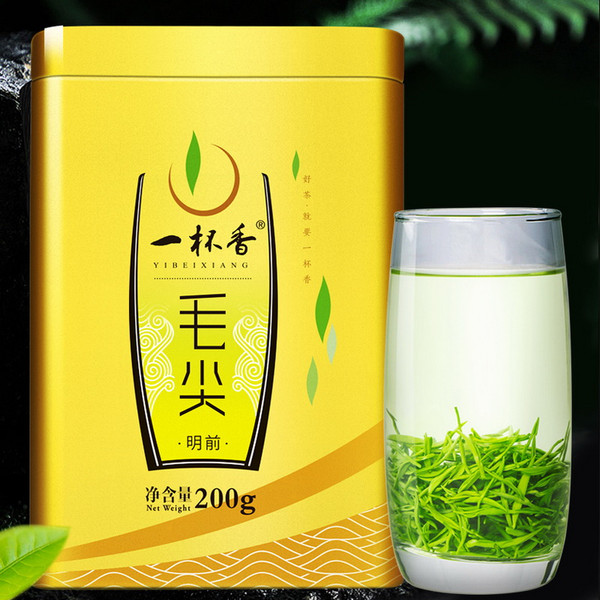Product Overview
Mao Jian literally means "hairy tips" referring to the appearance of the tea leaves. Henan's Xinyang prefecture has been famous for its Maojian tea since the Tang dynasty. Today it is one of the country's most thriving areas of agricultural and sideline production, quite often visited and written about, so its tea is being sampled by more people.
Though Xinyang is on the edge of the arid North China plain, the mountainous southern and western parts, crisscrossed by streams and brooks, have plenty of the clouds and mist needed for good tea. The processed leaves are in fine, taut strips. They make a delicious tea with a chestnut flavor and a long-lasting aftertaste.
This tea has been produced with only very simple equipment. What make it different are the skillful hand movements of rolling, adjusted to the heat and softness or dryness of the tender leaves. The brewed tea is pale-gold in colour and has a grassy fragrance with a sweet, long lasting aftertaste.Full bodied tea with distinct floral aroma with a hint of cool minty note. Very refreshing aftertaste. Made up of "single bud only" to "one bud one leaf" tea leaves. Truly the finest quality of Xin Yang Mao Jian.
Xin Yang Mao Jian may be prepared in a standard full-sized teapot, but for best results we recommend using a gaiwan (traditional covered steeping cup). Preheat the gaiwan with hot water and fill with 1-2 teaspoons of leaf. Cover with relatively cool water [60-65C (140-149F)] and infuse for 1 or 3 minutes, adjust time, temperature, and quantity according to your personal preference. To serve, pour into a pitcher or directly into warmed tasting cups and enjoy. Xin Yang Mao Jian may be reinfused several times by gradually increasing steeping time and water temperature.









